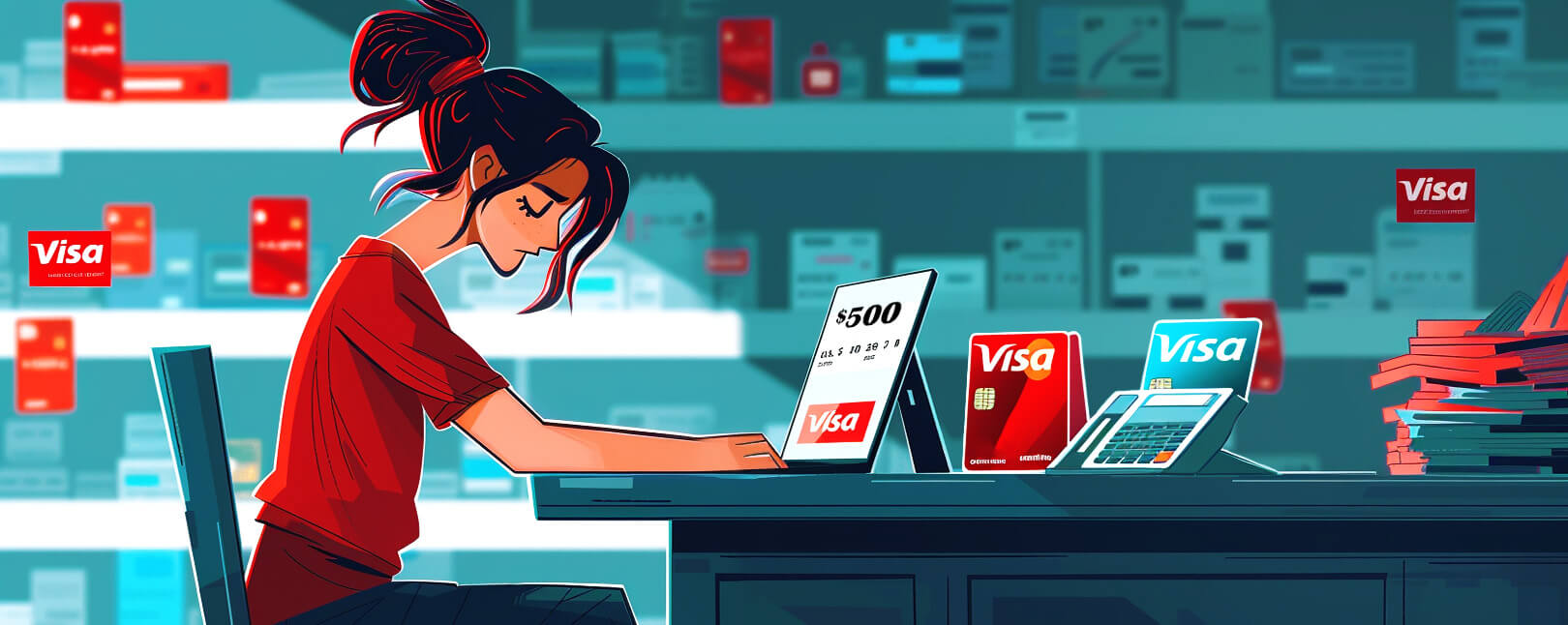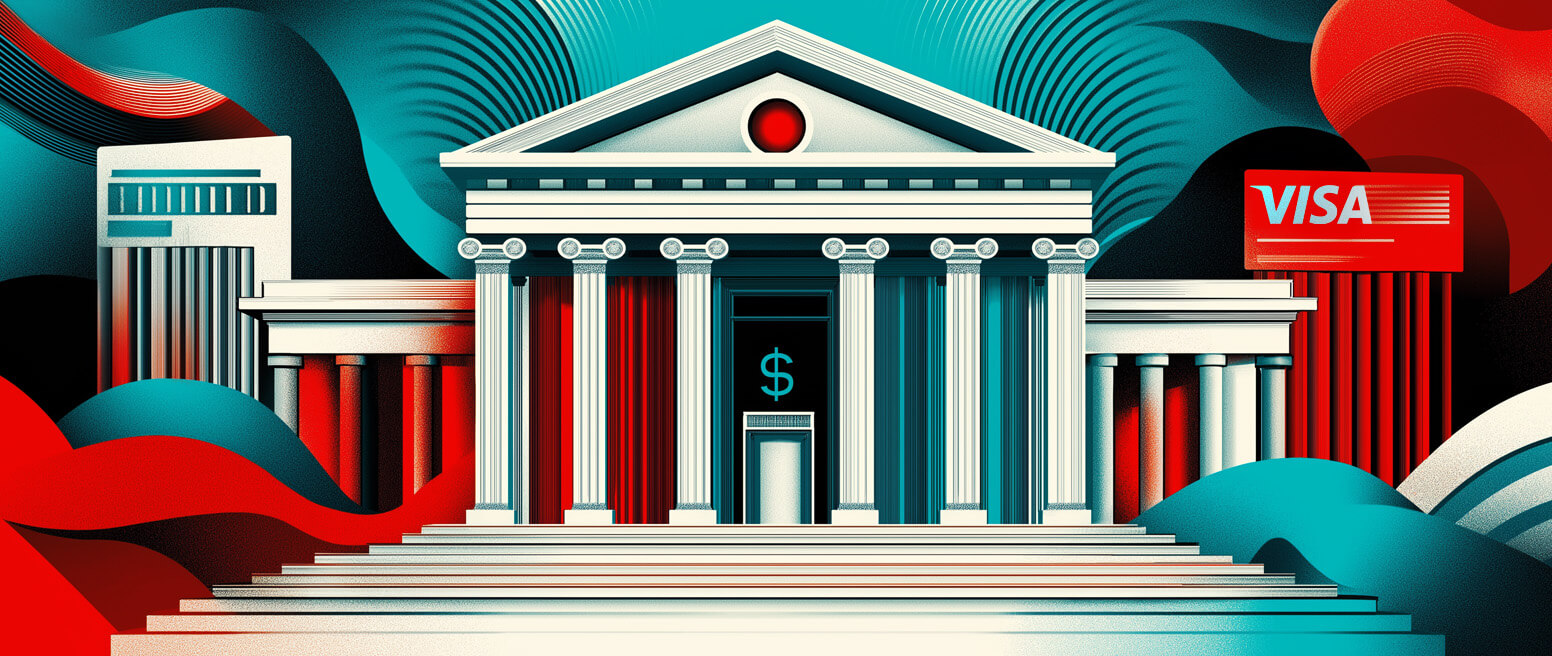8 Tips That Can Help You Cut Out Costs Due to Visa Chargeback Fees
So, let’s say you have a customer that files a chargeback on a Visa purchase.
You’re losing sales revenue and — let’s be honest — you’re probably going to lose the merchandise that you’ve already shipped out to your (former) customer. That’s a bummer, for sure.
But, as if losing money and products wasn’t bad enough, now the bank is adding insult to injury by hitting you up for an additional Visa chargeback fee?

What’s the deal with these stupid fees? How much is the bank going to charge you, and why do you have to pay an extra premium after you’ve already been subject to a bank-enabled shakedown?
Recommended reading
- Visa Chargeback Rules: Your “A-to-Z” Guide for Visa Disputes
- Visa Acquirer Monitoring Program: Major Visa Updates in 2024
- Visa Chargeback Time Limits: The 2024 Guide
- What is the Visa Arbitration Process for Chargebacks?
- Visa Authorization Rules: Changes to Time Frames & Options
- Visa Resolve Online: The Guide to Manage Disputes With VROL
How Much is the Visa Chargeback Fee?
Let’s address this right at the top. You want to know how much a Visa chargeback fee is going to be, but we can’t tell you exactly how much your fee is going to be.
Even though the penalty is being assessed on a Visa chargeback, there is no flat rate for Visa chargeback fees. Typical chargeback fees are generally around $20 per incident. The exact fee is not standardized and can be determined by the bank that processes the transaction for you.
Visa doesn’t publish a comprehensive fee schedule for these chargeback fees. They leave room for variability. In other words, the amount you’ll be required to pay varies depending on the bank that processed the payment.
While $20 is the average fee, different banks can impose different fees based on their individual policies. It all depends on the agreements they have in place with individual merchants. A chargeback fee could be as low as $5 per dispute, or as much as $100 per dispute.
The average Visa chargeback fee is around $20 per dispute. However, the final total is determined by your acquiring bank.
Why Am I Being Charged a Visa Chargeback Fee?
You might assume that banks assess dispute fees as a way of punishing you for getting a chargeback. That’s really not the case, though. If you want to know the truth, the main reason why banks assess chargeback fees is to cover the costs associated with managing and processing disputes.
Undoing a transaction involves a lot of paperwork. There’s a lot of back-and-forth messages to read as forms and funds move through the payment ecosystem.
Every time a chargeback gets initiated, your bank has to invest resources to review the details and transmit data on your behalf. They have to verify transaction records, communicate with different parties, and ensure compliance with Visa chargeback rules. These tasks require time, manpower, and technology, all of which incur expenses.
Visa chargeback fees are meant to cover all this activity. It’s a way for banks to recuperate some of the costs involved and ensure they can continue to provide services efficiently.
Banks assess chargeback fees to cover the overhead costs they incur as a result of processing chargebacks for their merchants.
All that being said, Visa might still hit you with a fee resulting from a chargeback. In the next couple of sections, we’ll explore technical penalties and arbitration fees in more detail.
What is a Visa Chargeback Technical Penalty?
Like we discussed above, banks assess chargeback fees to cover their costs associated with chargebacks. Visa can impose a $250 technical penalty on top of those fees, though, if they determine that you seriously violated the rules outlined in their Merchant Agreement.
Now, unlike the chargeback fees assessed by banks a technical penalty is a punishment, in a sense. Visa prioritizes smooth transactions and protecting the integrity of the payment process. Violating their rules and abusing the Visa ecosystem jeopardizes their mission. That’s the purpose of a technical penalty.

Violations that may lead to a Visa technical penalty can include:
Visa aims to maintain a high standard of compliance by enforcing these penalties. After all, a single violation can compromise the security and reliability of the payment network. So, in the end, the point is still to protect both merchants and consumers from potential financial loss.
What are Visa Arbitration Fees?
“Arbitration” refers to a situation in which there’s a dispute between a merchant and a cardholder that cannot be resolved through the initial chargeback and representment process. When this happens, Visa steps in to make a final decision (i.e. “arbitrate” the situation).
This process is not without its costs, though. Visa imposes a $500 filing fee for arbitration cases that are ruled in favor of the cardholder.
The purpose of a Visa arbitration fee is multifaceted. It helps cover the expenses associated with Visa's involvement in the chargeback, discourage frivolous use of the arbitration process, and encourage both parties to settle disputes earlier in the process.
Keep in mind that card network arbitration is an option. But, always remember that it’s a very in-depth process. They substantial fee reflects the depth of the review process, plus the resources required to reach a final decision. This is why this escalating to arbitration should be used only as a last resort.
How to Avoid Visa Chargeback Fees
Even if chargebacks aren’t a big problem for you at the moment, you’d be wise to take steps now to get a handle on chargeback fees while you can. Managing chargeback risk is one of the best, most holistic things you can do to maintain profitability and foster trust with customers.
To that end, here are some actionable tips you can adopt to help stop disputes and avoid those punishing Visa chargeback fees:
#1 | Use Order Insight
Order Insight is a tool that provides additional transaction details directly to card issuers, helping to clarify legitimate purchases for cardholders. By offering clear and accessible information about transactions, you can reduce misunderstandings and prevent chargebacks before they even start.
#2 | Get Chargeback Alerts
Chargeback alerts work by notify you before a potential chargebacks. They let you address pending disputes directly with the customer before they escalate. They let you get proactive about disputes by preventing individual chargebacks from being filed.
Chargeback alerts can stop up to 90% of chargebacks before they happen. Click here to learn more.
#3 | “Plus” Your Customer Service
Great customer service will help prevent chargebacks by addressing customer concerns before they devolve into disputes. So, ensure your team is well-trained to handle complaints and provide refunds when requested.
#4 | Describe the Bill — Get Clear Billing Descriptors
Use a clear and recognizable billing descriptor to avoid confusing customers when they review their statements. Ambiguity in billing descriptors can lead to customers not recognizing a charge and subsequently filing a dispute.
#5 | Become a Record-Keeping Rockstar
Maintain thorough documentation for every transaction, including customer communications and shipping proofs. Having detailed records can aid you during the representment process if a chargeback occurs.
#6 | Have the Right Tools in Your Belt
Use fraud detection tools and services to identify and block suspicious transactions. One tool isn’t gonna cut it; address verification, CVV validation, geolocation, and other tools are complementary, working to help make one another stronger.
#7 | Be Clear About Policies
Clearly state your return and refund policies on your website, and make sure they’re easy to understand. Let customers know what to expect before they make a purchase. Remember: world-class communication helps set the right expectations.
#8 | Talk to Your Bank
You should maintain an open dialog with your acquiring bank. They’ll give you specific details on the fees you’re charged. Plus, if you want to reduce the fees you pay, the bank can point you in the right direction with tips and best practices.
At the end of the day, these best practices can help steer your business clear of many Visa-related chargebacks but won’t stop them all. By adopting these strategies, you can significantly reduce the risk of chargebacks and associated fees, ultimately leading to a healthier bottom line and more satisfied customers.
That’s not the end of the story, though. We hate to be the ones to say it, but no matter what you do or how prepared you are, you’re always going to be susceptible to some chargebacks. This is why it’s so important to pair these tips with comprehensive chargeback management as part of a multilayered strategy to fight fraud and protect your revenue.
FAQs
Why was I charged a chargeback fee?
You were charged a chargeback fee to cover the administrative costs of processing the dispute. Your bank imposed this fee, but it’s standard practice across the industry. The fee can vary depending on the bank and the terms of your merchant agreement, but it is usually a flat rate per chargeback.
How much can you charge back on Visa?
There’s no hard limit to the amount you can dispute. Visa has set guidelines that allow cardholders to dispute the full amount of a transaction if they believe there has been an error, fraud, or failure to receive the purchased product or service.
What is a chargeback fee on a card?
A chargeback fee is a penalty imposed on merchants when a cardholder disputes a transaction. The fee covers the administrative costs associated with investigating and processing the dispute. It serves as an incentive for merchants to maintain accurate records, provide clear billing descriptors, and enhance fraud prevention measures.
Does Visa charge for chargebacks?
Visa does not directly charge cardholders or merchants for filing a chargeback. However, merchants may incur fees as part of the chargeback process. These fees are typically levied by the merchant's acquiring bank and can vary depending on the bank and the payment processor's policies.













